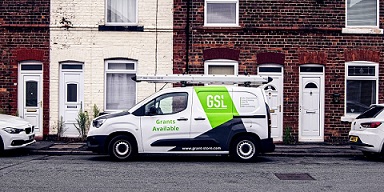As an author, I know how important it is to have a great website. A good author website can help me connect with readers and sell more books. The process taken to build an author website was both challenging and rewarding as the website is often the first place readers go to learn about me and my work, so I need to make it count.
I’ve found that the best author websites have content that really engages readers. This can include things like book excerpts, behind-the-scenes info about my writing process, and fun extras for fans. I also try to keep my site updated with my latest news and upcoming events.
Having a strong online presence as an author is key in today’s digital world. My website is the hub of that presence – it’s where I can showcase my brand and personality. With the right content, I can turn casual visitors into loyal readers.
Key Takeaways
- An author website is crucial for connecting with readers and promoting books
- Engaging content like excerpts and extras keeps visitors coming back
- A well-designed site showcases an author’s brand and builds their online presence
Building Your Author Brand
Your author brand sets you apart and connects you with readers. It’s how you present yourself and your work to the world. A strong brand helps readers remember you and keeps them coming back for more.
Crafting a Compelling Author Bio
I always start with a great author bio. It’s my chance to share my story and connect with readers. I keep it short and sweet, around 100-150 words. I include my writing background, major achievements, and a personal touch.
I make sure to highlight what makes me unique as a writer. Maybe it’s my unusual career path or a quirky hobby that influences my stories. I also mention the genres I write in and the themes I explore.
A professional headshot is a must. I use a high-quality photo that shows my personality. It helps readers put a face to my name and feel more connected to me.
Designing a Professional Website
My website is my online home. I keep it clean, easy to navigate, and mobile-friendly. The design reflects my genre and writing style. For example, if I write thrillers, I might use darker colors and bold fonts.
I make sure my site loads quickly and works well on all devices. My books are front and center, with clear links to buy them. I include a blog, contact form, and email signup to engage with readers.
I update my site regularly with new content, book releases, and events. This keeps readers coming back and helps with search engine rankings.
Creating Valuable Content
Content is key to engaging readers. I blog about my writing process, share behind-the-scenes looks at my books, and offer writing tips. This gives readers a reason to visit my site between book releases.
I vary my content types. Sometimes I write short posts, other times I create videos or podcasts. I also share book recommendations and author interviews to provide value to my audience.
I use social media to promote my content and interact with readers. I respond to comments and messages promptly. This builds a community around my brand and keeps readers engaged.
Maximizing Reader Engagement
Engaging readers on your author website helps build a loyal fan base and boost book sales. Let’s look at some effective ways to connect with your audience and keep them coming back for more.
Interactive Elements and Social Media
I’ve found that adding interactive elements to my website really gets readers involved. Polls and quizzes about my books or characters are always popular. I also include a forum where fans can discuss my stories and share theories.
Social media integration is key. I embed my latest tweets and Instagram posts right on my homepage. This gives visitors a peek into my daily life as an author. I make sure to respond to comments regularly, both on social platforms and my website.
An “Ask Me Anything” section lets readers submit questions I answer each week. This personal touch helps them feel connected to me and my work.
Organizing Contests and Giveaways
Running contests and giveaways is a great way to reward loyal readers and attract new ones. I hold monthly book giveaways where fans can win signed copies or exclusive merch.
To enter, I ask readers to share a post about my latest book on social media. This spreads the word and boosts engagement. I also run writing contests tied to my stories’ themes or characters. The best entries get featured on my site.
For bigger book launches, I organize scavenger hunts with clues hidden across my website. Prizes include advance reader copies or character-inspired gift baskets.
Hosting Webinars and Events
Virtual events let me connect with readers anywhere in the world. I host monthly webinars on topics like my writing process or the inspiration behind my books. Fans can ask questions in real-time, making it an interactive experience.
Book clubs are another hit. I pick a different novel each month and lead an online discussion. It’s a chance for in-depth talks about themes and characters.
When possible, I schedule in-person events too. Book signings and readings at local stores are always fun. I also speak at writing conferences, sharing tips with aspiring authors.
Enhancing Book Promotion
I’ve found some great ways to boost book sales and build a strong author brand. These tactics can really help connect with readers and spread the word about your work.
Leveraging Book Reviews and Endorsements
I always make sure to showcase positive reviews and endorsements on my author website. It’s a powerful form of social proof that can sway potential readers. I display quotes from respected reviewers and fellow authors prominently on my homepage and book pages.
I also encourage readers to leave reviews on popular online bookstores. To make it easy, I include direct links to my book’s review pages. More reviews often lead to better visibility in search results and recommendations.
I’ve created a dedicated “Press” page where I compile all media mentions, interviews, and notable reviews. This helps build credibility and shows the breadth of interest in my work.
Utilizing Email Lists and Newsletters
I’ve found that building an email list is crucial for book marketing. It gives me a direct line to my most engaged readers. I use a sign-up form on my website to collect email addresses, offering a free short story or chapter as an incentive.
For managing my list, I use Mailchimp. It’s user-friendly and has great features for authors. I send out a monthly newsletter with updates on my writing progress, upcoming events, and exclusive content.
I make sure each email provides value to my subscribers. This might include writing tips, book recommendations, or behind-the-scenes glimpses into my writing process.
Sharing Exclusive Content
I love giving my website visitors and email subscribers special access to exclusive content. This helps create a sense of community and rewards loyal readers.
I often share sneak peeks of works in progress, deleted scenes, or alternate endings. These extras give fans more insight into my stories and characters.
Cover reveals are another great way to build excitement. I tease new book covers on my website and social media before the official release.
I’ve also created book trailers for some of my novels. These short videos help bring the story to life and can be shared across various platforms to attract new readers.
Establishing a Strong Media Presence
A solid media presence helps authors connect with readers and gain visibility. I’ll share tips on creating a media page and networking effectively.
Creating a Media Page and Kit
I recommend adding a media page to my author website. This page should have my author photo, bio, and book covers. I’ll include links to interviews I’ve done and articles about my work. A downloadable media kit is also helpful. This kit can have my press release, author Q&A, and high-res images.
I make sure my contact info is easy to find. This helps journalists reach me quickly. I also add testimonials from readers or other authors. These build credibility.
My media page showcases my expertise. I list topics I can speak about in interviews. This helps reporters know what I can offer their audience.
Networking with Peers and Media
I use social media to connect with other authors and journalists. Twitter and Instagram are great for short updates. I share writing tips or behind-the-scenes glimpses of my work.
I join writing groups on Facebook. These groups let me chat with peers and learn about media opportunities. I also follow literary agents and publishers. They often share industry news.
I attend book fairs and writing conferences. These events are perfect for meeting reporters and bloggers in person. I always bring business cards with my website and social media info.
I comment on book blogs and literary websites. This helps me build relationships with book reviewers. When I have a new book, these connections can lead to coverage.



